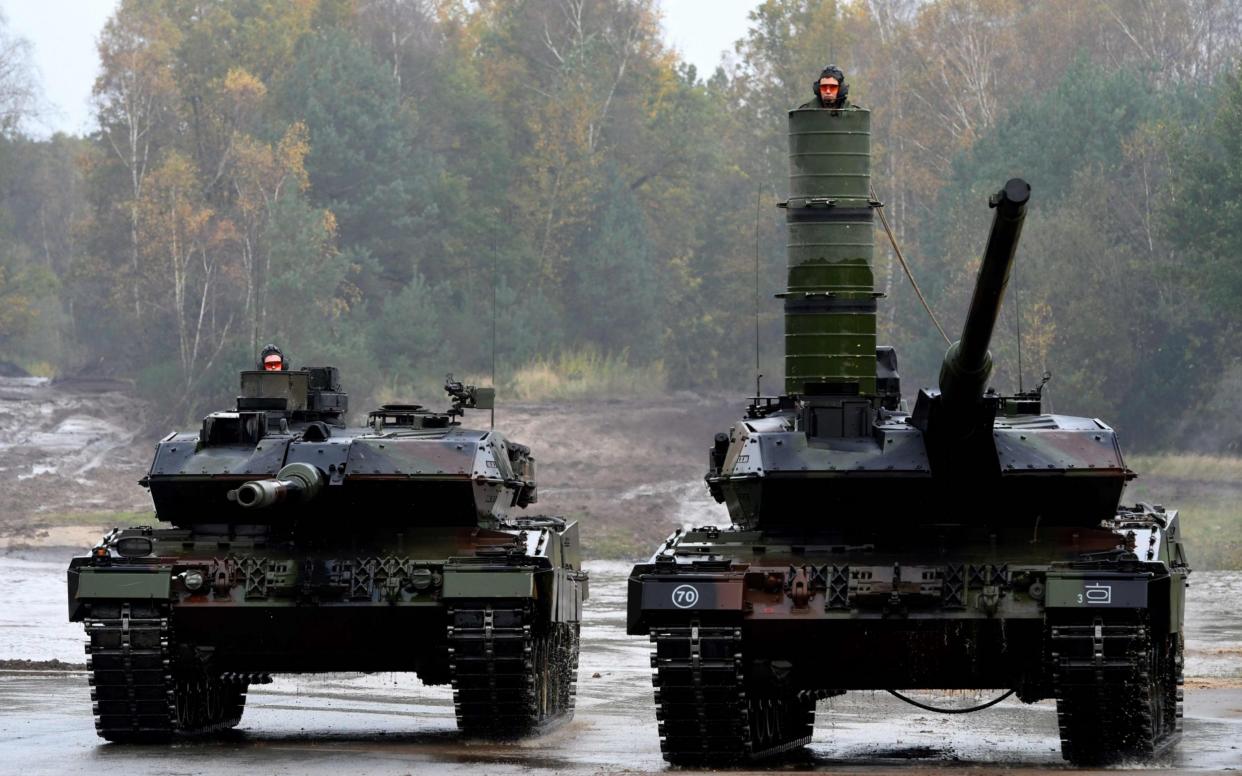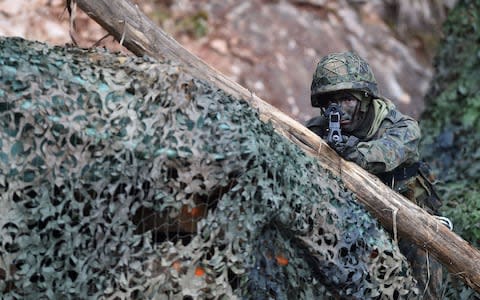German armed forces 'not equipped' to do the job, rules watchdog

Germany’s armed forces are suffering from severe shortages of weapons and equipment that put the country’s ability to meet its Nato commitments in doubt, a parliamentary watchdog warned yesterday.
The German military is “not equipped to meet the tasks before it”, Hans-Peter Bartels, the parliamentary commissioner for the armed forces said as he presented his annual report.
Operational readiness is “dangerously low” and the country’s ability to take over a frontline Nato taskforce next year must now be “in question”, he warned.
The damning report described how only 95 of the German army’s 244 Leopard main battle tanks are currently operational because of maintenance issues.
None of the German navy’s six submarines were operational at the end of last year, and only nine of a planned 15 frigates are in service.
None of the Luftwaffe’s 14 A400M transport aircraft were airworthy on several occasions last year, and replacement aircraft had to be chartered to bring serving troops home.
There is also a serious shortage of personnel, and 21,000 junior officer and NCO positions are currently unfilled.
Germany is supposed to take command of Nato’s Very High Readiness Joint Task Force (VJTF), a key unit tasked with deterring Russian aggression in Europe, at the start of next year.
But Mr Bartels warned: “The German contribution to the VJTF must remain in question”.
The German tank battalion that is due to take command of the taskforce currently only has nine operational tanks out of a total of 48.
Only six of the army’s 30 logistics battalions are fully equipped with vehicles, and only 30 per cent of planned equipment is actually operational.
The report comes a day after it was leaked that German units do not have sufficient winter clothing, tents or protective gear to fulfil their commitments to the VJTF.

The damning report put the blame for the shortages squarely on Angela Merkel’s government, saying the current defence budget of €38.5bn (£34bn) is too low.
President Donald Trump has demanded Nato’s European members contibute more to the cost of their defence and raise military spending to meet the alliance’s target of 2 per cent of GDP.
Britain is one of six European countries that now meet this target, but Germany, Europe’s biggest economy, is lagging far behind. It spent 1.13 per cent of its GDP on defence last year, and though Mrs Merkel’s new coalition deal pledges to boost spending to €42.4bn by 2021, that would only account for 1.15 per cent of projected GDP.
The damning parliamentary report comes only three years after a scandal over military shortages that saw German troops forced to use broomsticks instead of guns on a Nato training exercise.
At the time Mrs Merkel’s government pledged to address the shortages, but Mr Bartels said those promises had not materialised.
“The pledged turnaround in personnel, equipment and financing is to be welcomed, but pledges alone do not make anything better,” he said.
“What I missed in the coalition agreement were concrete proposals on how the planned incrase from 185,000 troops to 200,000 is to be financed.”
Mr Bartels is a former MP appointed by the German parliament to represent the interests of the military. Under measures in postwar Germany’s constitution drafted to prevent any repeat of the abuses of the Nazi era, the armed forces are directly commanded by parliament.
The hard-hitting report was seen as a direct attack on the current defence minister, Ursula von der Leyen, who is said to be unpopular with troops.
Ms von der Leyen has presided over a series of shortage scandals during her time at the defence ministry, at the same time as introducing initiatives such as creches and flexible working hours for soldiers.
Once seen as a potential successor to Mrs Merkel, Ms von der Leyen has fallen back in the pecking order. Mrs Merkel is said to want to keep her on as defence minister in an imminent reshuffle, but her hand may be forced by the latest shortages.

 Yahoo News
Yahoo News 
